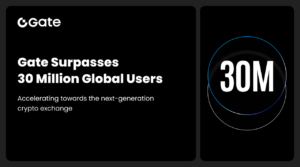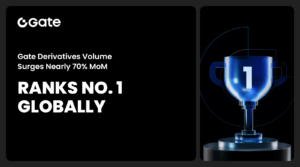
Blockchain role in creating a fair society
Introduction
In recent years, blockchain technology has gained a lot of attention due to its potential to revolutionize various industries. Its ability to create decentralized, secure, and transparent systems has made it a promising solution to many problems. One of the areas where blockchain can make a significant impact is in creating a more transparent and fair society. This article explores the role of blockchain in achieving this goal.
What is blockchain?
Before delving into how blockchain can create a more transparent and fair society, it’s essential to understand what blockchain is. In simple terms, blockchain is a decentralized, distributed ledger technology that allows transactions to be recorded in a secure, tamper-proof manner. Instead of relying on a central authority, such as a bank or government, blockchain relies on a network of nodes that work together to validate transactions and maintain the integrity of the system.
How can blockchain create a more transparent society?

Transparency is a vital aspect of a fair society. Blockchain can help create transparency in various ways, including:
-
Decentralization
Blockchain is a decentralized technology, which means that there is no central authority controlling the system. Transactions are recorded on a distributed ledger that is accessible to anyone on the network. This means that all participants in the network have access to the same information, creating a level of transparency that is not possible with centralized systems.
-
Immutable ledger
Once a transaction is recorded on the blockchain, it cannot be altered or deleted. This creates a tamper-proof record of all transactions on the network, making it easier to track and verify transactions.
-
Smart contracts
Smart contracts are self-executing contracts that can be programmed to automatically execute when certain conditions are met. They can be used to create transparent and secure agreements without the need for intermediaries, such as lawyers or notaries.
How can blockchain create a more fair society?
In addition to creating transparency, blockchain can also help create a more fair society by:
1. Eliminating intermediaries
Blockchain can eliminate intermediaries in various industries, such as finance, real estate, and supply chain management. This can reduce costs and increase efficiency, making it easier for individuals to access these services.
2. Financial inclusion
Blockchain can enable financial inclusion by providing access to financial services to individuals who do not have access to traditional banking systems. This can help reduce poverty and increase economic growth.
3. Eliminating corruption
Blockchain can eliminate corruption by creating transparent and tamper-proof records of transactions. This can make it easier to identify and prosecute corrupt individuals.
Challenges of using blockchain to create a more transparent and fair society
While blockchain has the potential to create a more transparent and fair society, there are also challenges that need to be addressed, including:
-
Scalability
One of the biggest challenges facing blockchain is scalability. The current blockchain infrastructure cannot support the number of transactions required for mass adoption.
-
Interoperability
There are currently multiple blockchain platforms, and they are not interoperable. This means that transactions cannot be made across different blockchain platforms, creating a barrier to adoption.
-
Regulation
Blockchain is still a relatively new technology, and there is a lack of regulatory frameworks in place to govern its use. This can create uncertainty and hinder adoption.
Blockchain and Government
Blockchain has the potential to transform the way governments operate, making them more transparent, efficient, and accountable. Here are some ways blockchain can be used in government:
1. Voting Systems
Blockchain can be used to create secure and transparent voting systems. By creating tamper-proof records of votes, blockchain can help prevent voter fraud and ensure that elections are fair and accurate.
2. Identity Management
Blockchain can be used to create secure and decentralized identity management systems. This can help reduce identity theft and provide individuals with more control over their personal data.
3. Supply Chain Management
Blockchain can be used to create transparent and secure supply chain management systems. This can help prevent fraud and ensure that goods are produced and distributed in an ethical and sustainable manner.
Blockchain and Finance
Blockchain has already made a significant impact on the finance industry, with the creation of cryptocurrencies such as Bitcoin. Here are some other ways blockchain can be used in finance:
1. Remittances
Blockchain can be used to create a faster, cheaper, and more secure way to send money across borders. By eliminating intermediaries, blockchain can reduce transaction costs and increase access to financial services.
2. Digital Identity
Blockchain can be used to create secure and decentralized digital identity systems. This can help reduce identity theft and provide individuals with more control over their personal data.
3. Insurance
Blockchain can be used to create transparent and secure insurance systems. This can help reduce fraud and ensure that claims are processed quickly and accurately.
Blockchain and Healthcare
Blockchain has the potential to transform the healthcare industry, making it more efficient, secure, and patient-centered. Here are some ways blockchain can be used in healthcare:
1. Medical Records
Blockchain can be used to create a secure and decentralized medical record system. This can help reduce medical errors and improve patient outcomes.
2. Clinical Trials
Blockchain can be used to create transparent and secure clinical trial systems. This can help ensure that data is accurate and that patients are treated ethically.
3. Drug Supply Chain Management
Blockchain can be used to create a transparent and secure drug supply chain management system. This can help prevent drug counterfeiting and ensure that patients receive safe and effective medication.
Blockchain and Energy
Blockchain has the potential to transform the energy industry, making it more efficient, transparent, and sustainable. Here are some ways blockchain can be used in energy:
1. Renewable Energy Certificates
Blockchain can be used to create transparent and secure renewable energy certificate systems. This can help ensure that renewable energy is produced and traded in a fair and sustainable manner.
2. Peer-to-Peer Energy Trading
Blockchain can be used to create peer-to-peer energy trading systems. This can help individuals buy and sell energy directly to one another, reducing the need for centralized energy providers.
3. Grid Management
Blockchain can be used to create a secure and decentralized grid management system. This can help reduce energy waste and ensure that the grid is used efficiently.
Blockchain and Supply Chain
Blockchain can revolutionize supply chain management by providing greater transparency, traceability, and efficiency. Here are some ways blockchain can be used in supply chain management:
1. Traceability
Blockchain can be used to create a tamper-proof record of every transaction that occurs within a supply chain. This can help to trace products back to their origin, which is useful for tracking down the source of contamination in food or verifying that a product is ethically sourced.
2. Smart Contracts
Smart contracts can automate supply chain processes, reducing the need for intermediaries and increasing efficiency. They can be used to execute contracts automatically when certain conditions are met, such as the delivery of goods or payment for services.
3. Payment Systems
Blockchain can be used to create secure payment systems for supply chain transactions. This can help reduce fraud and increase the speed and efficiency of payments.
Blockchain and Education
Blockchain can transform the education industry by providing greater transparency, security, and accessibility. Here are some ways blockchain can be used in education:
1. Credentials Verification
Blockchain can be used to create a tamper-proof record of academic credentials, making it easier for employers to verify the qualifications of job candidates.
2. Digital Rights Management
Blockchain can be used to create a secure and decentralized system for managing digital rights, such as textbooks or online courses. This can help reduce piracy and ensure that creators are fairly compensated for their work.
3. Micro-Credentials
Blockchain can be used to create a system of micro-credentials that recognize small but significant accomplishments, such as completing a short course or attending a conference. This can help individuals showcase their skills and knowledge to employers and advance their careers.
Blockchain and the Environment
Blockchain can help to address some of the environmental challenges facing the world today, such as climate change and deforestation. Here are some ways blockchain can be used to protect the environment:
1. Carbon Credits
Blockchain can be used to create a transparent and secure system for trading carbon credits. This can help reduce greenhouse gas emissions and promote sustainable development.
2. Conservation
Blockchain can be used to create a system for tracking wildlife populations and protecting endangered species. This can help to promote conservation efforts and protect biodiversity.
3. Sustainable Supply Chains
Blockchain can be used to create a transparent and sustainable supply chain management system for industries such as food and fashion. This can help reduce waste and promote ethical and sustainable production practices.
Conclusion
Blockchain technology has the potential to create a more transparent and fair society by eliminating intermediaries, increasing financial inclusion, and reducing corruption. However, there are also challenges that need to be addressed, including scalability, interoperability, and regulation. As the technology continues to evolve, it will be interesting to see how it is adopted and implemented to create a more transparent and fair society.
I have worked in the cryptocurrency industry for over 5 years and have written numerous articles on the subject. I am well-versed in all aspects of cryptocurrencies and blockchain technology, and am an expert in the field.








